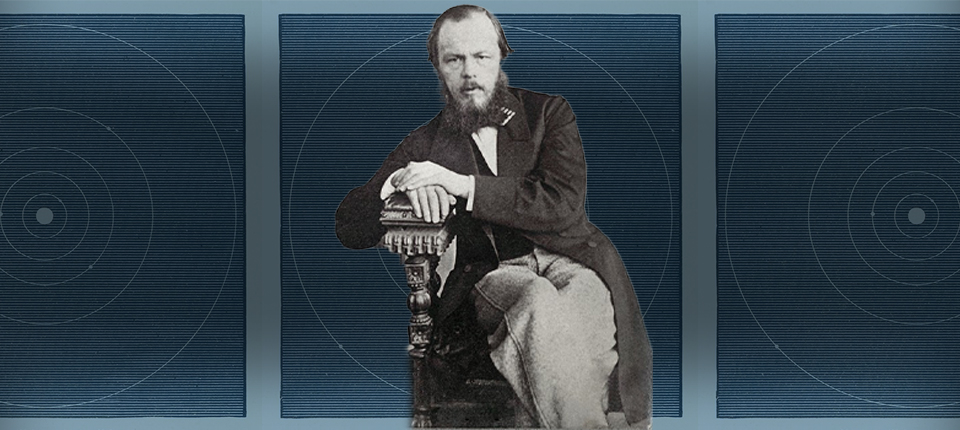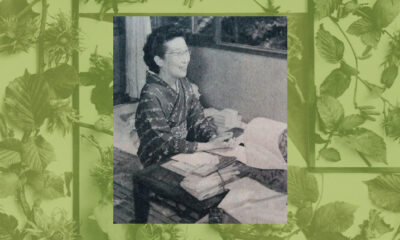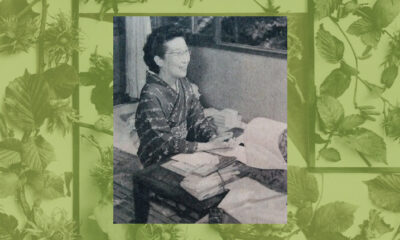Lifestyle
National Book Award Finalists Share Insights on Writing and Reading

The finalists for the 2025 National Book Awards have opened up about their literary journeys, revealing their thoughts on writing, reading habits, and the challenges faced in the publishing industry. These conversations delve into personal experiences, reflecting the diverse narratives that shape contemporary literature.
Insights from Emerging Voices
Maria Kunetsova, one of the nominated authors, recounted the precarious nature of the publishing world, recalling a time when she felt the industry had placed a risky bet on her work. “It was a gamble, and I had to confront the reality of what it meant when that gamble didn’t pay off,” she shared in a recent interview. Kunetsova’s reflections highlight the emotional complexities authors navigate in their careers.
In a compelling discussion, Sarah Viren spoke with Jen Percy about her exploration of gendered violence through her writing. Viren stated, “Ultimately, I think I came to understand freezing as both a prison and a superpower.” This powerful metaphor illustrates the duality of vulnerability and strength that many writers experience.
Another notable conversation featured Olivia Laing, who discussed her latest work that fictionalizes cinematic icons Federico Fellini and Pier Paolo Pasolini. Laing’s approach to these figures offers a fresh perspective on their lives and legacies, showcasing how literature can bridge the gap between reality and imagination.
Crafting Narratives and Addressing Challenges
The literary community is also engaged in deeper discussions concerning representation and narrative responsibility. Andrew Ridker addressed the difficulties faced by Jewish writers today, particularly in the context of recent geopolitical events. “The challenge facing Jewish fiction writers is telling stories in which Jews behave badly in the name of Judaism,” he explained. He emphasized the need for authenticity in storytelling without fear of misinterpretation or misuse.
In a different vein, Thomas Flett, a character in Benjamin Wood’s Booker Prize-longlisted novel, “Seascraper,” embodies the struggles of those dependent on the ever-changing tides of life and economy. Wood’s narrative paints a vivid picture of resilience against nature’s forces, mirroring the challenges many face in various sectors of society.
The conversations also touched on broader themes in literature and journalism. Boris Groys examined philosophical interpretations of human existence, while Philip Weinstein explored the existential questions surrounding life and death. These discussions not only address literary craft but also highlight the urgent questions of our time.
The literary landscape is further enriched by the contributions of authors like Char Adams, Michelle Carr, and Viola van de Sandt, who participated in the Lit Hub Questionnaire, expressing their thoughts on the struggles of impostor syndrome versus the confidence required to share one’s work. “I’d gladly take some level of hubris over my impostor syndrome,” Adams remarked, resonating with many in the creative fields.
As the 2025 National Book Awards approach, the insights shared by these authors reflect not only their personal experiences but also the evolving narrative of literature in society today. The conversations foster a deeper understanding of the interconnectedness of storytelling and the human condition, reminding us of the power of words in addressing complex issues.
-

 Technology5 months ago
Technology5 months agoDiscover the Top 10 Calorie Counting Apps of 2025
-

 Technology3 weeks ago
Technology3 weeks agoOpenAI to Implement Age Verification for ChatGPT by December 2025
-

 Health3 months ago
Health3 months agoBella Hadid Shares Health Update After Treatment for Lyme Disease
-

 Health4 months ago
Health4 months agoAnalysts Project Stronger Growth for Apple’s iPhone 17 Lineup
-

 Health4 months ago
Health4 months agoErin Bates Shares Recovery Update Following Sepsis Complications
-

 Technology5 months ago
Technology5 months agoDiscover How to Reverse Image Search Using ChatGPT Effortlessly
-

 Technology3 months ago
Technology3 months agoElectric Moto Influencer Surronster Arrested in Tijuana
-

 Technology5 months ago
Technology5 months agoMeta Initiates $60B AI Data Center Expansion, Starting in Ohio
-

 Technology2 months ago
Technology2 months agoDiscover 2025’s Top GPUs for Exceptional 4K Gaming Performance
-

 Technology5 months ago
Technology5 months agoRecovering a Suspended TikTok Account: A Step-by-Step Guide
-

 Health5 months ago
Health5 months agoTested: Rab Firewall Mountain Jacket Survives Harsh Conditions
-

 Lifestyle5 months ago
Lifestyle5 months agoBelton Family Reunites After Daughter Survives Hill Country Floods













